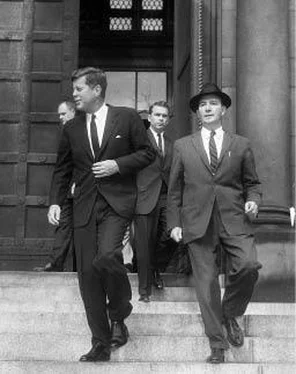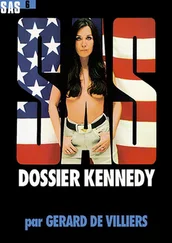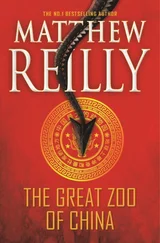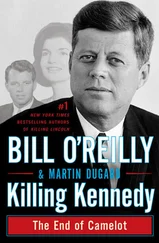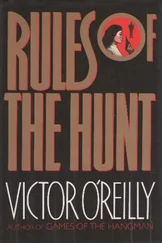O’Reilly, Bill - Killing Kennedy
Здесь есть возможность читать онлайн «O’Reilly, Bill - Killing Kennedy» весь текст электронной книги совершенно бесплатно (целиком полную версию без сокращений). В некоторых случаях можно слушать аудио, скачать через торрент в формате fb2 и присутствует краткое содержание. Год выпуска: 2012, Издательство: Henry Holt and Company, Жанр: Старинная литература, на английском языке. Описание произведения, (предисловие) а так же отзывы посетителей доступны на портале библиотеки ЛибКат.
- Название:Killing Kennedy
- Автор:
- Издательство:Henry Holt and Company
- Жанр:
- Год:2012
- ISBN:нет данных
- Рейтинг книги:5 / 5. Голосов: 1
-
Избранное:Добавить в избранное
- Отзывы:
-
Ваша оценка:
- 100
- 1
- 2
- 3
- 4
- 5
Killing Kennedy: краткое содержание, описание и аннотация
Предлагаем к чтению аннотацию, описание, краткое содержание или предисловие (зависит от того, что написал сам автор книги «Killing Kennedy»). Если вы не нашли необходимую информацию о книге — напишите в комментариях, мы постараемся отыскать её.
Killing Kennedy — читать онлайн бесплатно полную книгу (весь текст) целиком
Ниже представлен текст книги, разбитый по страницам. Система сохранения места последней прочитанной страницы, позволяет с удобством читать онлайн бесплатно книгу «Killing Kennedy», без необходимости каждый раз заново искать на чём Вы остановились. Поставьте закладку, и сможете в любой момент перейти на страницу, на которой закончили чтение.
Интервал:
Закладка:
Kennedy is a Pulitzer Prize–winning historian, having received the award for his book Profiles in Courage . He knows the value of a great inaugural address. For months he has fussed over the words he is about to recite. Just last night, when the lights were turned on inside the car to make Jackie visible to onlookers, he reread Thomas Jefferson’s inaugural address—and found his own lacking by comparison. This morning, he rose after just four hours of sleep and, pencil in hand, scrutinized his speech again and again and again.
His words resonate like a psalm. “Let the word go forth from this time and place, from friend and foe alike, that the torch has been passed to a new generation of Americans—born in this century, tempered by war, disciplined by a hard and bitter peace, proud of our ancient heritage…”
This is no ordinary inaugural address. This is a promise. America’s best days are still to come, Kennedy is saying, but only if everyone pitches in to do his part. “Ask not what your country can do for you,” he commands, his voice rising to deliver the defining sentence, “but what you can do for your country.”
The address will be hailed as an instant classic. In less than 1,400 words, John Fitzgerald Kennedy defines his vision for the nation. He now sets the speech aside, knowing that the time has come to fulfill the great promise he has made to the American people. He must manage the issue with Cuba and its pro-Soviet leader, Fidel Castro. He must tackle problems in a faraway land known as Vietnam, where a small band of U.S. military advisers is struggling to bring stability to a region long rocked by war. And here at home, the power of the Mafia crime syndicates and the divisiveness of the civil rights movement are two crucial situations requiring immediate attention. And on a much more personal level, he must negotiate the animus between Attorney General Bobby Kennedy and Vice President Lyndon Johnson, who despise each other.
JFK surveys the adoring crowd, knowing that he has much work to do.
But not all those invited to the inauguration have turned up. The famous entertainers attending the previous night’s parties were promised prime seats for this pivotal moment in American history, but owing to the cold and a 100-proof celebration that stretched into the wee small hours, singer Frank Sinatra, actor Peter Lawford, and composer Leonard Bernstein—along with a host of others—opted to sleep late and watch the event on television. “I’ll see the president’s second inaugural” is their common refrain.
But there will be no second inaugural. For John Fitzgerald Kennedy is on a collision course with evil.
* * *
Approximately 4,500 miles away, in the Soviet city of Minsk, an American who did not vote for John F. Kennedy is fed up. Lee Harvey Oswald, a former U.S. Marine Corps sharpshooter, has had enough of life in this Communist nation.
Oswald is a defector. In 1959, at age nineteen, the slightly built, somewhat handsome, enigmatic drifter decided to leave the United States of America, convinced that his socialist beliefs would be embraced in the Soviet Union. But things haven’t gone according to plan. Oswald had hoped to attend Moscow University, even though he never graduated from high school. Instead, the Soviet government shipped him more than four hundred miles west, to Minsk, where he has been toiling in an electronics factory.

Lee Harvey Oswald at his application for Soviet citizenship in 1959. (Bettmann/Corbis/AP Images)
Oswald is fond of being on the move, but the Soviets have severely restricted his travel. Until now, his life has been chaotic and nomadic. Oswald’s father died before he was born. His mother remarried and soon divorced. Marguerite Oswald had little money and moved young Lee frequently, traveling through Texas, New Orleans, and New York City. By the time he dropped out of high school to enlist in the marines, Oswald had lived at twenty-two different addresses and attended twelve different schools—including a reform institution. There, a court-ordered psychiatric evaluation found him to be withdrawn and socially maladjusted. He was diagnosed as having “a vivid fantasy life, turning around the topics of omnipotence and power, through which he tries to compensate for his present shortcomings and frustrations.”
The Soviet Union in 1961 is hardly the place for a man in search of independence and power. For the first time in his life, Lee Harvey Oswald is stuck. He gets up every morning and trudges to the factory, where he labors hour after hour operating a lathe, surrounded by coworkers whose language he barely understands. His defection in 1959 was reported by American newspapers because it was extremely unusual for a U.S. Marine—even one so pro-Soviet that his fellow marines had nicknamed him “Oswaldskovich”—to violate the Semper Fi (Always Faithful) oath and go over to the enemy. But now he is anonymous, which he finds completely unacceptable. Defection doesn’t seem like such a good idea anymore. Oswald confides to his journal that he is thoroughly disenchanted.
Lee Harvey Oswald has nothing against John Fitzgerald Kennedy. He doesn’t know much about the new president or his policies. And while Oswald was a crack shot in the military, little in his past indicates that he would be a threat to anyone but himself.
As America celebrates Kennedy’s inauguration, the defector writes to the U.S. embassy in Moscow. His note is short and to the point: Lee Harvey Oswald wants to come home.
PART I

Cheating Death
1
AUGUST 2, 1943
BLACKETT STRAIT, SOLOMON ISLANDS
2:00 A.M.
It is February 1961. The new president has a coconut on his desk. He is lucky to be alive, having already cheated death three times in his short life, and the unusual paperweight is a reminder of the first time he came face-to-face with his own mortality. His staff makes sure to place the coconut in a prominent position when they move the new president into the Oval Office. They know their boss wants that very special coconut in his line of sight, because it is a reminder of a now-famous incident that tested his courage.
* * *
Eighteen years earlier, in 1943, on a balmy Pacific night, three American patrol torpedo boats cruise the Blackett Strait in the South Pacific, hunting Japanese warships near a hotly contested area known as The Slot. At eighty feet long, with hulls of two-inch-thick mahogany, and powered by three powerful Packard engines, these patrol torpedo (PT) boats are nimble vessels, capable of flitting in close to sink Japanese battleships with a battery of Mark VIII torpedoes.
The skipper of the boat bearing the number 109, a young second lieutenant, slouches in his cockpit, half alert and half asleep. He has shut down two of his engines to conceal PT-109 from Japanese spotter planes. The third engine idles softly, its deep propeller shaft leaving almost no wake in the iridescent water. He gazes across the ocean on this night without moon or starlight in the hope of locating the two other nearby PTs. But they are invisible in the darkness—just like 109.
The skipper doesn’t see or hear the destroyer Amagiri until it’s almost too late. She’s part of the Tokyo Express, a bold Japanese experiment to transport troops and weapons in and out of the tactically vital Solomon Islands via ultrafast warships. The Express relies on speed and the cover of night to complete these missions. Amagiri has just dropped nine hundred soldiers at Vila, on nearby Kolombangara Island, and is racing back to the Japanese bastion at Rabaul, New Guinea, before dawn will allow American bombers to find and destroy her. She is longer than a football field but a mere thirty-four feet at the beam, her shape allowing Amagiri to knife through the sea at an astonishing forty-four miles per hour.
Читать дальшеИнтервал:
Закладка:
Похожие книги на «Killing Kennedy»
Представляем Вашему вниманию похожие книги на «Killing Kennedy» списком для выбора. Мы отобрали схожую по названию и смыслу литературу в надежде предоставить читателям больше вариантов отыскать новые, интересные, ещё непрочитанные произведения.
Обсуждение, отзывы о книге «Killing Kennedy» и просто собственные мнения читателей. Оставьте ваши комментарии, напишите, что Вы думаете о произведении, его смысле или главных героях. Укажите что конкретно понравилось, а что нет, и почему Вы так считаете.
